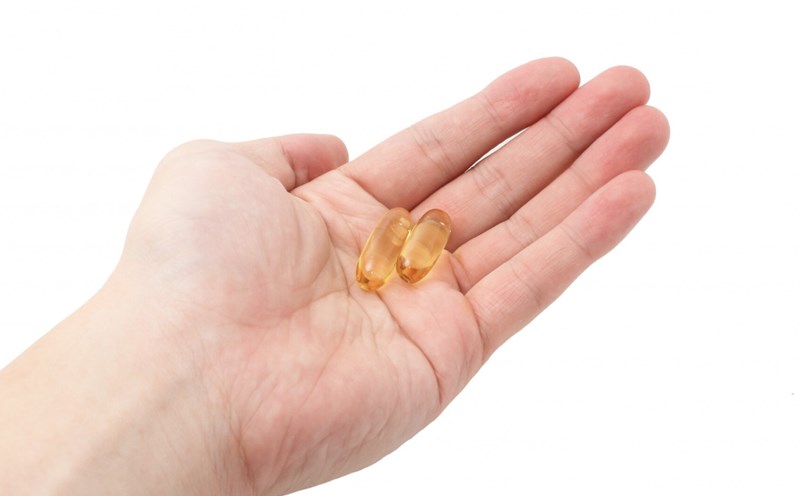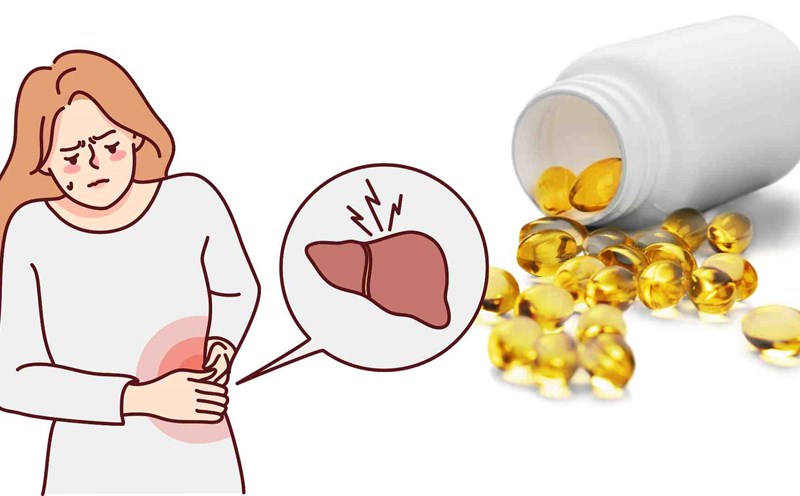Vitamin A: Supports skin regeneration and anti-aging
Vitamin A is often known as retinoids or retinol, common ingredients in anti-aging products. This vitamin has the ability to stimulate collagen production, help reduce wrinkles, fade crow's feet and improve rough skin texture, according to Onlymyhealth.
Sources of vitamin A: Sweet potatoes, carrots, spinach, and skin care products contain retinol.
Vitamin C: Brightens skin and protects against free radicals
Vitamin C is a powerful antioxidant that can protect the skin from the harmful effects of sunlight and environmental pollution. At the same time, it also helps brighten the skin, reduce dark spots, even out skin tone and stimulate collagen production, an important factor in keeping skin firm and elastic.
Sources of vitamin C: Citrus fruits, bell peppers, strawberries, and skin care products contain L-ascorbic acid.
Vitamin E: Moisturizes and soothes the skin
Vitamin E is famous for its deep moisturizing ability, helping to strengthen the skin's barrier and prevent dehydration through the skin's licorice. This is an ideal choice for dry, sensitive skin or skin that is recovering from damage.
In addition, vitamin E also helps soothe inflammation, reduce irritation and when combined with vitamin C, the antioxidant effects will be significantly enhanced.
Sources of vitamin E: Nuts (almonds, sunflower seeds), avocados, vegetable oils, and skin creams contain vitamin E.
Vitamin D: Regenerate and support skin immunity
Vitamin D plays a role in supporting skin regeneration, reducing inflammation and strengthening the skin's immune system. It is especially useful for people with skin diseases such as eczema, psoriasis or atopic dermatitis. Although the body can synthesize vitamin D through sunlight, limiting exposure due to using a lot of sunscreen or being indoors can lead to deficiency.
Sources of vitamin D: Sunlight, supplements (as prescribed by your doctor), fatty fish, egg yolks, and vitamin D-fortified milk.
Vitamin K: Reduces darkness and enhances skin recovery
Vitamin K is often lowly evaluated but plays an important role in supporting skin healing, reducing bruising, and fade dark circles under the eyes and dark scars. It helps improve subcutaneous blood circulation, supporting the recovery of damaged skin areas.
Sources of vitamin K: Dark green vegetables such as kale, spinach, broccoli.
Coordinated vitamins: Power of combination
No vitamin can take on all the roles of skin care. However, when combined properly, they can bring outstanding results:
Vitamin C + Vitamin E: Strengthens skin protection against free radicals, helps brighten the skin and prevent aging better.
Vitamin A + Vitamin C: Combine cell regeneration and skin lightening.
A diet rich in vitamins (trees, vegetables, nuts, whole grains) and using Serums and appropriate moisturizers will help nourish the skin from the inside out.











